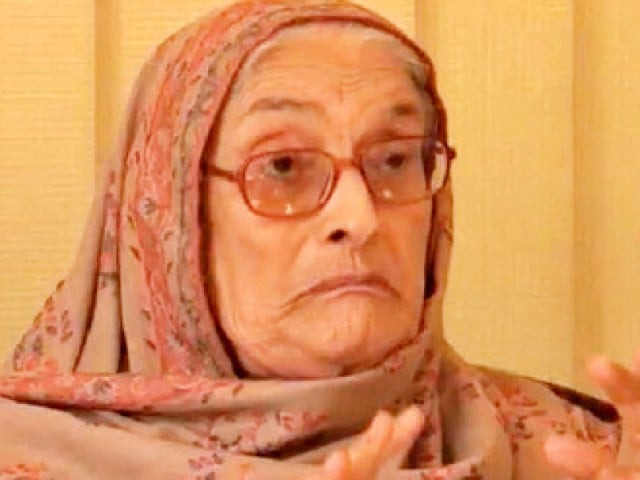Political past: At 79, Begum Nasim Wali’s political acumen is still fresh
Life of Wali Khan’s wife provides insight into dynastic politics and female participation.

Awami National Party - Chairperson Begum Nasim Wali Khan. PHOTO: EXPRESS FILE
Nasim was one of those who refused to obey this diktat, which is why some of the most hardened opponents to her decision to continue with politics are people within her former party and especially her family.
Nasim appeared on the political front in 1975 when her husband Wali Khan, president of the Pashtun nationalist National Awami Party (NAP), was arrested and the party banned by then prime minister of Pakistan Zulfikar Ali Bhutto. Much like Begum Nusrat Bhutto, who would perform this role when her husband Zulfikar would suffer a similar fate as Wali’s at the hands of military dictator General Ziaul Haq, Nasim took the reins of NAP, leading a successful movement to have her husband and dozens of his NAP colleagues released from Hyderabad Jail.

“I laid the foundation of National Democratic Party (NDP) after consultation with my imprisoned husband and renowned Sindhi politician Sardar Sherbaz Mazari,” says Nasim, who will celebrate her 80th birthday in January next year. The NDP, whose primary objective was to secure the release of Khan and other party workers, led a successful campaign for their freedom for three years. At this point, critics wanted Nasim to step down and not be a part of the Awami National Party (ANP), the party formed by Wali Khan after his release.
“My rivals in ANP were of the view that I should return to my normal life at home as the key purpose of my having joined politics had been achieved [with Khan’s release],” Nasim says. “Party colleagues who were opposed to my political career thought that being a Pakhtun woman, I should not participate in public meetings and other political gatherings with men. However, Khan always snubbed that handful of people and defended my active role in ANP.”
She made history during her initial period in politics when she became the first woman elected from Khyber-Pakhtunkhwa on a general seat in the 1977 elections.
As a parliamentary leader of ANP in the KP assembly, she also emerged as a top political powerbroker as she was elected for three consecutive terms. She also thrice served as the provincial president of Awami National Party (ANP).
Ultimately, though, her ANP rivals found an opportunity to oust her soon after the death of Wali Khan in 2006.
Published in The Express Tribune, October 7th, 2015.



















COMMENTS
Comments are moderated and generally will be posted if they are on-topic and not abusive.
For more information, please see our Comments FAQ